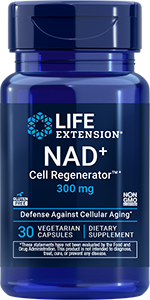
Newsletter
Newsletter
Review determines therapeutic doses of omega-3 for people with atherosclerosis

In an article published March 7, 2023, in Nutrition Reviews, researchers at Flinders University in Australia reported an omega-3 polyunsaturated fatty acid dosage and duration range that was most likely to result in omega-3 blood levels associated with a treatment benefit for patients with atherosclerosis.1 The researchers determined that taking EPA at a dosage of 1.8 grams to 3.4 grams per day for three to six months, or 4.4 grams per day for one to six months were the most effective regimens to increase blood omega-3 fatty acids to therapeutic levels.
“It has been proposed that omega-3s, through their antioxidant and anti-inflammatory properties, mitigate atherosclerotic disease progression,” Nicole C. Nayda and colleagues wrote. “However, due to the systemic proinflammatory and pro-oxidative state of atherosclerosis, it is proposed that patients with atherosclerotic disease may have higher omega-3 requirements than the average requirement, due to increased nutrient utilization in anti-inflammatory and antioxidant processes.”
Nayda and associates identified 25 articles that reported the findings of 17 studies which provided information concerning omega-3 dosage and blood levels in patients with chronic atherosclerotic disease. For the current review, 150 mg/mL of the omega-3 fatty acid eicosapentaenoic acid (EPA) or an omega-3 index of 8% or higher was used as the threshold for a therapeutic blood level, based on multiple large reviews that have found these values improve clinical outcomes and reduce the risk of mortality in these patients. Omega-3 index reflects the percentage of EPA and DHA in red blood cell membranes.
“Consideration should be given to routine omega-3 dosing and to increasing the omega-3 dietary recommendations and upper limits of daily intake to improve clinical outcomes and reduce the risk of cardiac mortality in this population,” the authors concluded.
Products
Apply What You’ve Learned: Omega-3
- Omega-3 fatty acids may help keep inflammation at a healthy level and promote healthy blood flow.2 They also have antioxidant effects.3 These effects contribute to a reduction in the progression of atherosclerosis.4 Omega-3 is one of a limited number of nutrients for which the U.S. Food and Drug Administration (FDA) allows a qualified health claim: “Supportive but not conclusive research shows that consumption of EPA and DHA omega-3 fatty acids may reduce the risk of coronary heart disease.”
- The Omega-3 index is a blood test that measures the percentage of eicosapentaenoic acid (EPA) plus docosahexaenoic acid (DHA) in the fatty acids contained in red blood cell membranes.5 Knowing your Omega-3 Index value can help guide your level of omega-3 intake.
- Alpha-linolenic acid is an essential omega-3 fatty acid that occurs in plants, which can be converted into the omega-3s EPA and DHA. Because this conversion can be low, it is best to obtain EPA and DHA directly from foods or stand-alone sources of these fatty acids.6
- Long-chain omega-3 polyunsaturated fatty acids like EPA and DHA occur in abundance in oily fish like salmon, cod, herring, sardines and mackerel. However, many individuals fail to consume oily fish on a regular basis. A variety of standalone sources are available to boost intake.
References
- Nayda NC et al. Nutr Rev. 2023 Mar 7;nuad020.
- Swanson D et al. Adv Nutr. 2012 Jan;3(1):1-7.
- Hajianfar H et al. Int J Prev Med. 2013 May; 4(Suppl 2): S234–S238.
- Verneniotis A et al. Curr Pharm Des. 2018;24(17):1865-1872.
- von Schacky C. Biomark Med. 2009 Feb;3(1):25-32.
- National Institutes of Health. Omega-3 fatty acids. https://ods.od.nih.gov/factsheets/Omega3FattyAcids-HealthProfessional/
Featured Life Extension Magazine® Article
Optimal Diet = 8 More Years
By William Faloon
An optimal diet is characterized by a higher intake of whole grains, legumes, fish, fruit, vegetables and nuts and reduced consumption of red and processed meat, sugar-sweetened drinks and refined grains. A model developed to estimate life expectancy of individuals who followed an optimal diet predicted that men who switched from a typical Western diet at the age of 60 could expect to gain an extra 8.8 years of life, while women could anticipate 8 additional years.
Research has also linked high red blood cell levels of omega-3 fatty acids and greater intake of mushrooms with a lower risk of premature mortality.
Read Full Article
What's Hot
Health Concern
Meta-analysis suggests CoQ10, folic acid, omega-3 most likely to benefit cardiovascular health
The December 13, 2022, issue of the Journal of the American College of Cardiology reported the results of a systematic review and meta-analysis that identified 3 supplements with antioxidant properties—coenzyme Q10 (CoQ10), the B vitamin folic acid and omega-3 fatty acids—as showing the greatest potential to lower lower cardiovascular disease risk.

Atherosclerosis and Cardiovascular Disease
Comprehensive blood testing helps identify and target specific risk factors, targeting a treatment regimen that can be used to preserve and improve cardiovascular health.
Related Life Extension Magazine® Articles

Life-Expectancy Impact of Fish Oil
Higher omega-3 levels correlate with greater human longevity. Flavored, chewable, fish oil gummies make it easy to obtain.

Higher Omega-3 Blood Levels Add Healthy Years
A 2021 study found people with higher omega-3 blood levels live 4.7 years longer. Other studies link higher omega-3s to a 34% lower all-cause mortality risk.
Life Extension Magazine® Issue Now Online
A remarkable number of healthy-longevity findings have been published over the past 18 months.
AMPK Metabolic Activator (item #02207): This supplement should be taken in conjunction with a healthy diet and regular exercise program. Individual results are not guaranteed, and results may vary.




